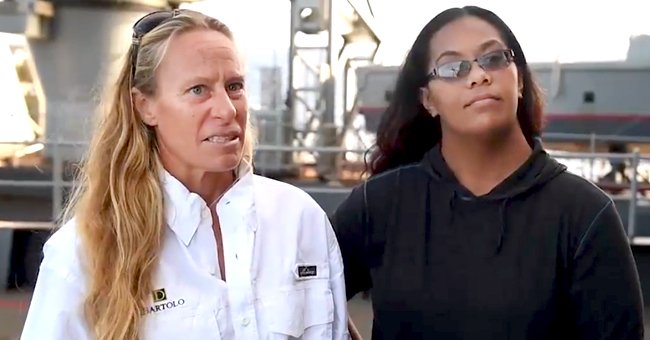
Two Women with Dogs Depended on a Scarce Food Reserve While Stuck in the Middle of the Ocean
Two women had a five-month adventure out at sea and claimed to have faced a giant storm, shark attacks, and a near-death experience. However, several experts believe otherwise.
Jennifer Appel and Tasha Fuiava were out for a sailing adventure from one island to another when a storm broke their engine and damaged the boat. Instead, they spent months out at sea, surviving on stored food.
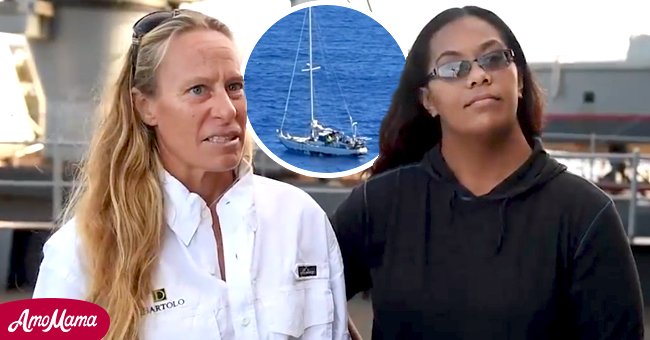
Source: Amomama
They stepped back on land later, claiming that they survived tiger sharks attacking their boat and met tall black waves during the storm, but critics don't seem to agree. Here's their story.
The reports showed that the Taiwanese vessel stopped as soon as seeing the women's boat and never tried to ram against them or kill them instead of what the woman said.
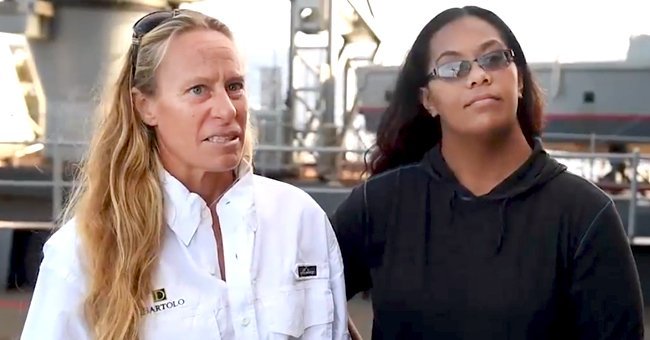
https://www.facebook.com/7thfleet/videos/10156283602059311)
OUT AT SEA
On May 3, 2017, two women, Jennifer Appel and Tasha Fuiava, and their two dogs, Zeus and Valentine, sailed on an 18-day trip from Honolulu, Hawaii, to Tahiti. Their adventure was nothing big as the girls were sailors with prior experience out at sea.
However, their cruise from island to island was met with several unexpected events, including a storm, sharks bumping their boat, and Taiwanese vessels going towards them. After being rescued by a navy vessel, the two sailors long for life out at sea again.
Their beloved sailboat, Sea Nymph, was abandoned and drifting away somewhere in Asia. While their story was one for the books, many experts and professionals question the consistency of the details with the events narrated. In a previous interview, Appel shared:
"It surprised me that the bad press started immediately because this is actually a feel-good story [...] It's beautiful out there. You don't smell the city life."
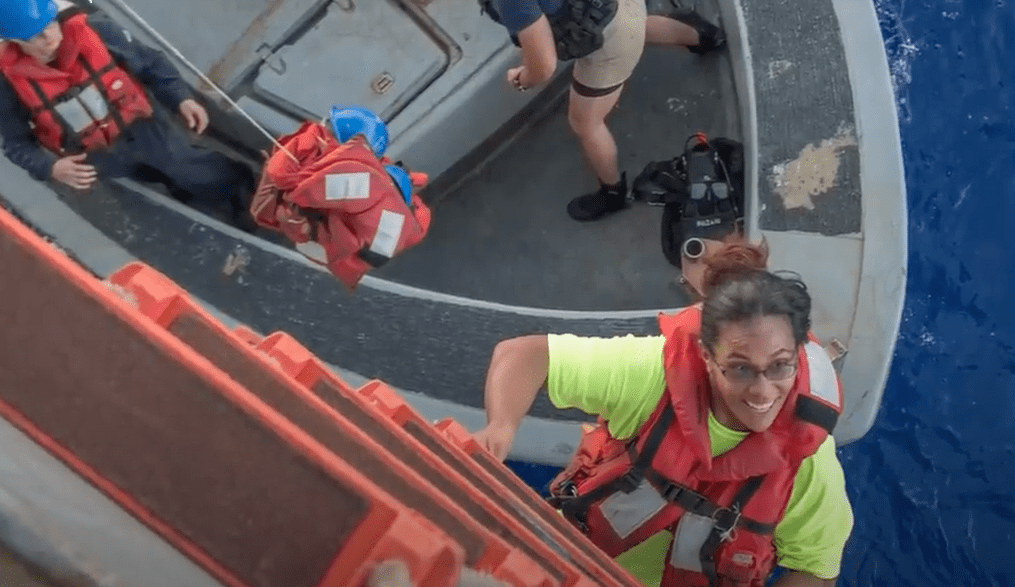
Tasha Fuiava climbing down to a rescue boat. | Source: Youtube/Newsy
THE STORM
The pair's 18-day trip turned into a five-month ordeal after sailing amidst a three-day-long storm on the coast of Hawaii. The terrible weather came hours after their departure and damaged the engine and broke the boat's mast.
During the storm, Appel tried to manage the wheel and steer their boat in a direction that won't make the tall black waves break the beam. The 48-year-old was dressed in heavy weather gear while spending time in the cockpit, hoping for the best.
Meanwhile, Fuiava, who isn't as knowledgeable in handling a boat, slept her way through the storm. According to the 26-year-old, she was a heavy sleeper who was told to sleep with their fur babies. "I knocked out like the dead," she described.
However, weather records showed no massive storm as the women claimed. NASA satellite images also had no accounts of storms happening during their departure. However, the National Weather Service and the Coast Guard did advise gusts of rain occurring, but nothing as big as their story.

Screenshot of Jennifer Appel and Tasha Fuiava's interview. | Source: Youtube/Newsy
ALERTING RESCUE TEAMS
The girls also faced scrutiny for choosing not to alert authorities as soon as they were in danger. According to the pair, six different communication devices did not work, which sailors believe to be unlikely.
More so, experts questioned why Appel and Fuiava failed to activate the emergency beacon to alert rescuers. The Emergency Position Indicating Radio Beacon (EPIRB) would have informed nearby officials that they were stranded.
The two had "one EPIRB on board, which was properly registered," said Coast Guard Officer Tara Molle. "As far as we know, the EPIRB on their sailboat was working properly. I can't speculate as to why they wouldn't have activated it."
When asked about this, Appel believed that they were not in imminent danger and did not want the coast guard to be busy with them when other sailors might need rescue. Additionally, although damaged, their boat was still fit for sailing, and they had food and water to survive.
BUMPED BY SHARKS
During their exciting adventure, Appel and Fuaiva encountered horrifying sharks circling the boat and banging on its side for a few hours. During an interview, Appel said:
"The sharks had been telling us, 'You're in our living room, and you're not leaving fast enough. And we didn't realize that was what we were being told until too late."
Still, even during the shark attack, the sailors opted not to use the EPIRB, thinking that it would take hours to a day until the coast guard would have reached their location. Meanwhile, experts claim that sharks behave otherwise.
According to the professionals, sharks only grow up to 17 feet instead of their 20 to 30 feet estimate. Experts also claimed that tiger sharks are not known to attack boats out at sea.
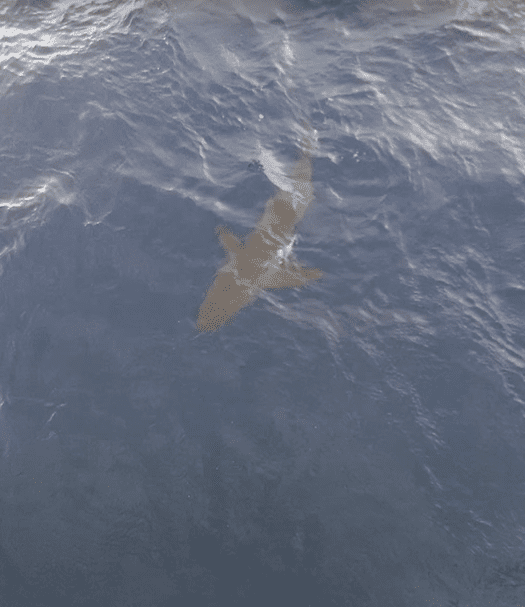
Screenshot from Jennifer Appel and Tasha Fuiava's interview with Today. | Source: Youtube/TODAY
TAIWANESE VESSELS
On October 25, the two women were rescued 900 miles southeast of Japan, but before that, they came in contact with Taiwanese vessels who towed their boat. It was only then that they felt that they were in danger.
According to Appel, the foreign vessel rammed against their small boat on purpose, violating standard protocol for distance. She added that the Taiwanese vessel tried to kill them at night instead of rescuing them.
It was only then that Appel alerted the Coast Guard using a phone instead of the EPIRB. On the other hand, a Taipei Economic and Cultural Office representative denied Appel's claims and said that the Taiwanese boat has a satellite system that tracks its location and speed for 24 hours.
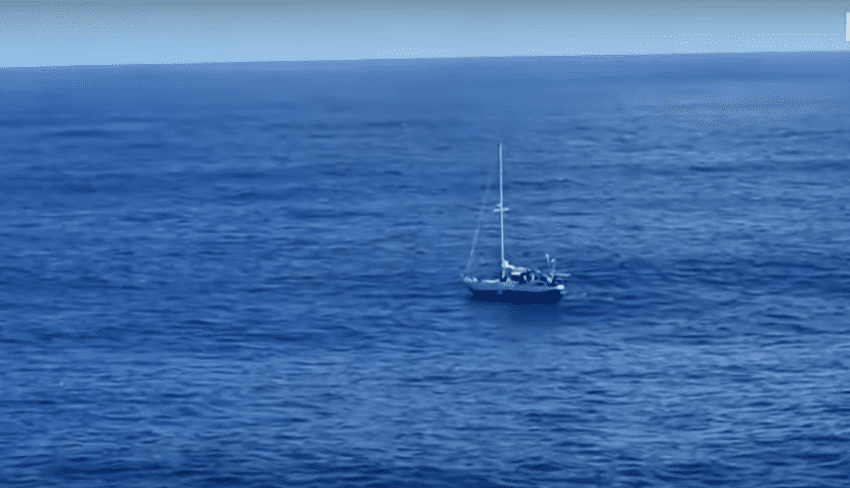
Screenshot from Jennifer Appel and Tasha Fuiava's interview with Today. | Source: Youtube/TODAY
The reports showed that the Taiwanese vessel stopped as soon as seeing the women's boat and never tried to ram against them or kill them instead of what the woman said. The inconsistencies of Appel's stories made her claims less believable.
The US Coast Guard tries to save as many lives as they can out at sea. Earlier this year, they launched a search and rescue operation after six people went missing off the coast of Florida.
